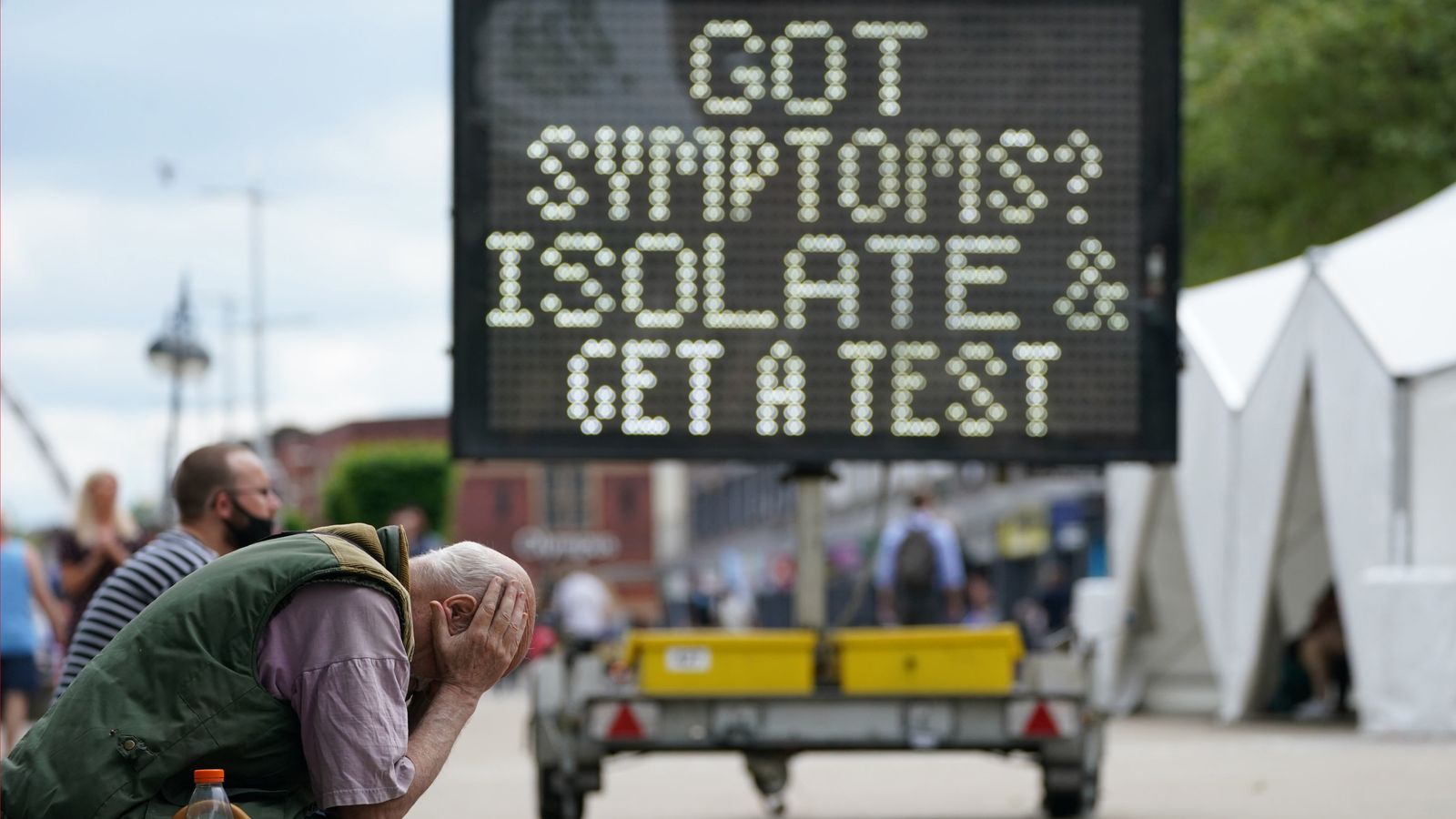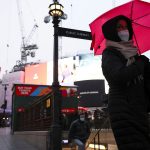The UK has reported another 7,540 coronavirus cases in the latest 24-hour period – the highest since 26 February.
Six further COVID-related deaths have also been recorded, according to government data.
The figures compare with 6,048 cases and 13 deaths announced yesterday, and 4,330 cases and 12 deaths this time last week.
Live COVID updates from the UK and around the world
The fatalities number records people who died within 28 days of a positive COVID test.
Meanwhile, another 136,802 people had a first dose of a vaccine on Tuesday, and 313,482 had their second dose.
The number fully vaccinated now stands at 28,540,844, while 40,710,319 have had at least one jab.
It comes as around eight in 10 people in the UK are believed to have coronavirus antibodies – either from having the virus or getting vaccinated, according to the Office for National Statistics.
The number of people in hospital with COVID has increased about 10% in the last week, from 921 on 31 May to 1,024 on 7 June – the latest day for which figures are available.
Some 154 people are on mechanical ventilation to help their breathing.
The number in hospital is still massively lower than during the peak of the second wave in mid-January when it reached more than 39,000.
The link between rising cases and hospitalisations and deaths will be a key consideration for ministers deciding whether to proceed with scrapping most remaining restrictions on 21 June.
With the more transmissible Indian – or Delta – variant now dominant in the UK, a leading scientist has warned of the risk of a “substantial third wave” in the UK.
Professor Neil Ferguson, whose modelling was key to the first lockdown, said that assessment was based on new data submitted to the government.
But he said the data also suggested a third wave may not be as severe as the previous spike in winter.
Speaking on Wednesday, he said: “Basically it (the modelling) is saying there is a risk of a substantial third wave, (but) we cannot be definitive about the scale of that – it could be substantially lower than the second wave or it could be of the same order of magnitude.
“That, critically, depends on how effective the vaccines still are protecting people against hospitalisation and death against the Delta (Indian) variant, as well as a few other unknowns.”
The data was was compiled by SPI-M – a subgroup of government advisory body SAGE.






















